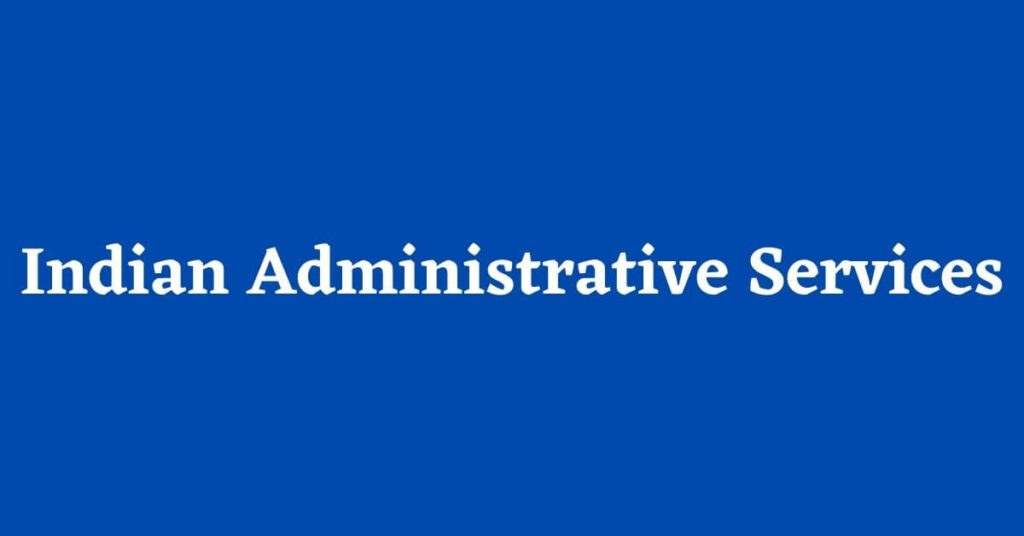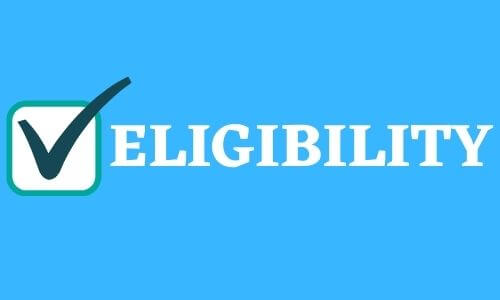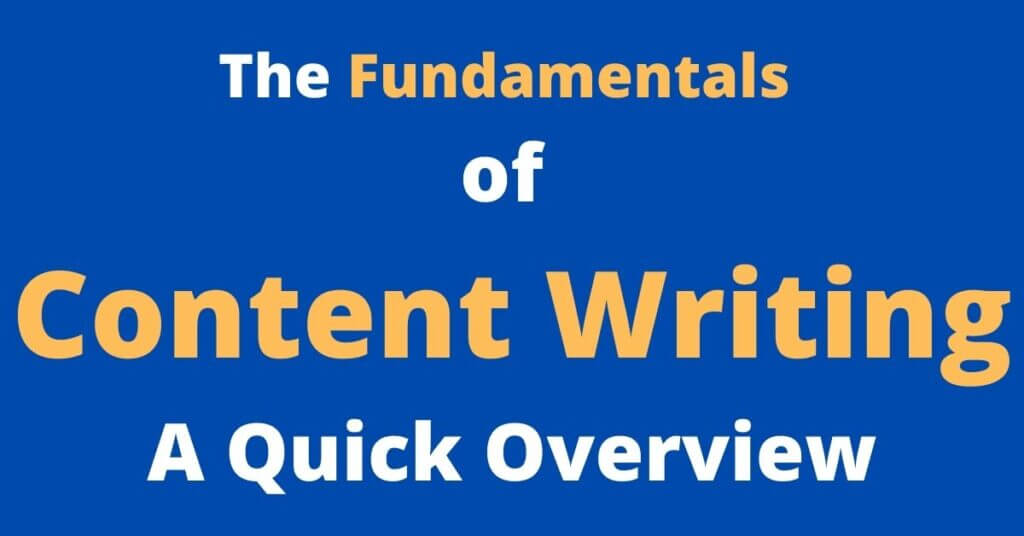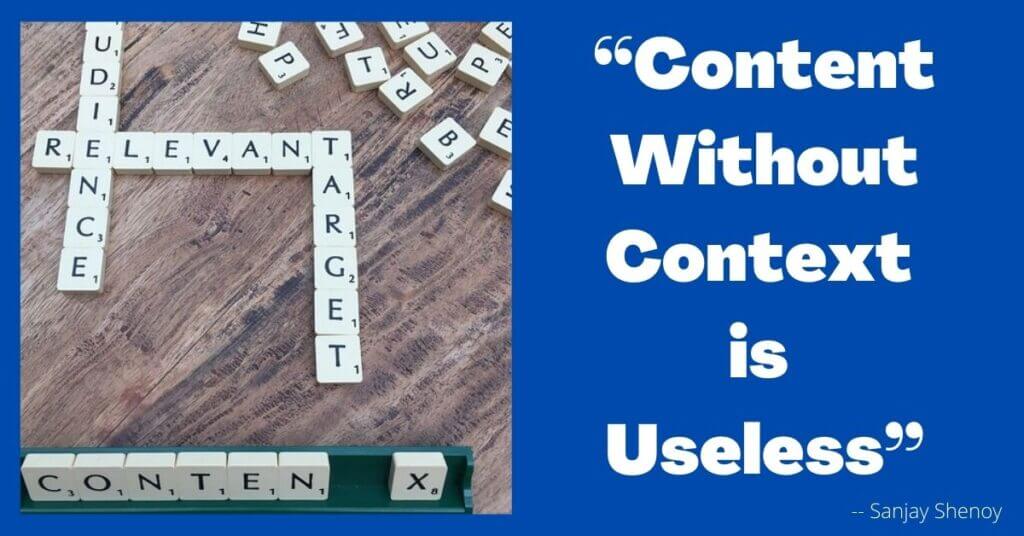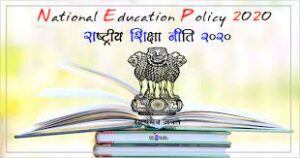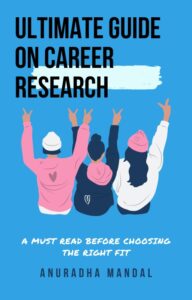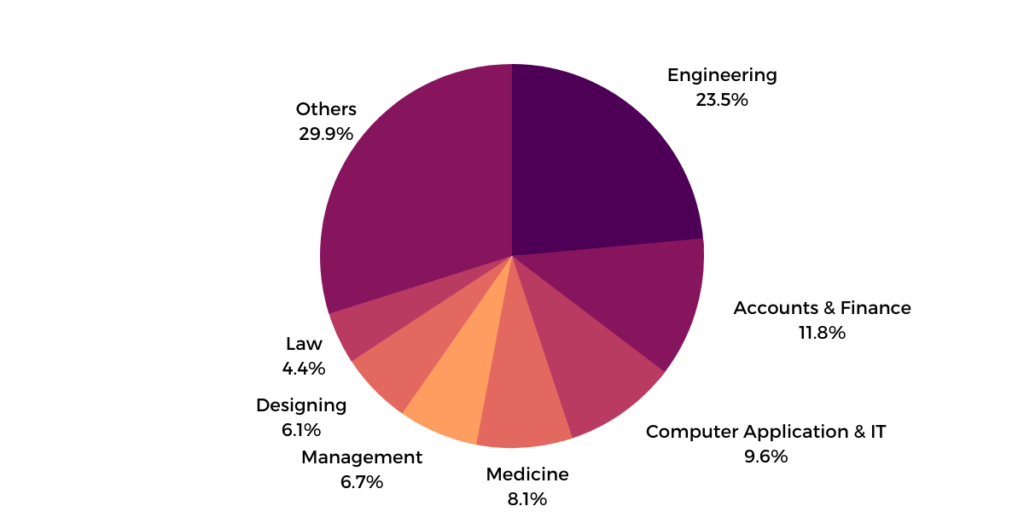IAS -The toughest Competitive Examination of India
Why Indian Administrative Services (IAS) – The toughest examination in India of 2021.
This exam has been one of the toughest examinations in India for several years and the story remains the same for this year also.
This article will highlight the structure, pattern, and screening process. It will also make you go through the entire journey of an IAS aspirant.
Indian Administrative Services is commonly referred to as IAS.
Indian Administrative Services is one of the three arms of the Indian Services along with the Indian Police Services (IPS) and the Indian Forest Services(IFS).
Indian Administrative Services (IAS) is considered to be the hardest competitive examination in India. This is conducted by Union Public Service Commission(UPSC) for the recruitment of the officers in All India Administrative Civil Service. IAS was formerly known as the Imperial Civil Service(ICS).
It was founded in 1858 as Imperial Civil Service.
Later in 1950, it was changed to Indian Administrative Service.
The Indian Administrative Services (IAS) is the top-ranking administrative civil service of the Government of India.
The IAS exam is conducted every year by the central recruiting authority, Union Public Service Commission(UPSC).
IAS exam is popularly called as Civil Services Examination(CSE). Hierarchy-wise, IAS is the highest post among the other 24 services like IPS, IFS, etc.
Highlights Of Indian Administrative Services
Every year, UPSC conducts the Civil Service Examination(CSE) for more than 24 services, such as IAS, IPS, and IFS, by shortlisting the candidates.
More than nine lakh candidates register for the IAS exam and almost five lakh candidates appear for the examination.
The selection process goes through several screenings starting with the preliminary exam, main examination, and interview.
Selection is a year-long process that starts in the month of June and ends in April, and the final list comes in the month of May.
| Name of the Exam | Civil Service Examination |
| Organizing Body | Union Public Service Commission (UPSC) |
| Exam Level | National |
| Exam Mode | Paper and Pen-based( Offline) |
| Number of Vacancies | Approx. 900 |
| Number of Services | 24 |
| Number of Attempts | 6 times |
| Number of Registrations | Approx. 9Lakh |
| Admit Card | Online |
| Official Website | https://www.upsc.gov.in/ |
UPSC IAS Exam Notification & Important dates
The UPSC generally releases the date of the Civil Services Examinations notification in the month of February. Aspirants willing to appear for this All Indian Services along with other services can apply online by visiting the official website of UPSC.
| Notification | Month |
| Civil Service Examination Advertisement | February |
| IAS- Online Application Form | February to March |
| IAS- Preliminary Admit Card | 2nd Week of May |
| IAS- Preliminary Exam | October |
| IAS- Preliminary Result | November |
| IAS-Main Exam | January |
| IAS-Main Result | February |
| IAS-Interview | March to April |
| IAS-Final Result | May |
Eligibility Criteria for an Indian Administrative Services
Nationality
The candidate must be a citizen of India to be eligible for the Indian Administrative Services (IAS) and The Indian Police Service (IPS), and for other services, the candidate must be either of the following
The candidate must be a citizen of India
The candidate must be a citizen of Nepal or a subject of Bhutan.
The candidate must be a Tibetan refugee who came to India before January 1, 1962, for settling permanently in India.
Candidates must be a person of Indian origin who has migrated from Burma, Pakistan, Ethiopia, Sri Lanka, Kenya, Myanmar, Uganda, Malawi, Tanzania, Vietnam, Zaire with the motive to settle permanently in India.
Educational Qualification
Candidates must hold a Bachelor’s degree from any of the recognized universities. There is no minimum percentage required in graduation.
Candidates who have appeared for the qualifying exam and are awaiting results are also eligible.
Candidates with professional and technical qualifications by recognized universities or their equivalent are also eligible to apply.
Age Limit & Number of Attempts
A candidate should be a minimum of 21 years and a maximum of 32 years to appear for the Civil Service Examination.
The maximum age mentioned above is relaxable for the following candidates :
- Scheduled Caste/Scheduled Tribe (SC/ST): 5 years
- Other Backward Classes(OBC) : 3 Years
- Defense Service Personnel : 3 years
- Ex-servicemen and ECOs/SSCOs who have served at least 5 years in Military Service as on 1st of August of the Notification Year: 5 years
- Blind, Deaf-mute and physically handicapped person: 10 Years.
| Category | Maximum Age Limit | No of Attempts |
| General | 32 Years | 06 |
| Other Backwards Castes (OBC) | 35 Years | 09 |
| Economically Weaker Section(EWS) | 32 Years | 06 |
| Scheduled Caste/Scheduled Tribe (SC/ST) | 37 Years | Till the age limit |
| Physically disabled candidates | 42 Years | For General and OBS candidates = 9
For SC/ST Candidates = Till age limit |
IAS Officer: Roles & Responsibilities
The role of an Indian Administrative Services officer is challenging and it demands a lot of perseverance and responsibility.
IAS officer is mainly responsible for maintenance of law and order and administration of the area assigned.
Following are the main roles and responsibility of an Indian Administrative Service officer :
Handling the affairs of the Government consisting of framing, implementation, supervising, and reviewing of the policies.
Management and disbursement of the funds from the central government to different schemes.
Responding to the emergencies such as riots, natural disasters, accidents, curfew, and coordinating for the relief activities.
Responsible for overall expenditure, for which they are answerable to the Parliament and the State Legislature
Bestowed the power to manage the holistic development of the area assigned and ensuring the law and order are maintained in any circumstances.
The responsibility and function differ at different levels of career.
IAS officer joins initially at the sub-divisional level as Sub-divisional Magistrate.
Responsible for the overall development of the area under their control by coming up with the new innovation and strategic plan and programs.
The District Officer also known as the District Magistrate, District Collector is one of the reputed and respectable posts, which come with some years of experience.
They are also appointed in the State Secretariat or Public Sector Undertaking.
At times they also serve in different State and Central Departments through deputation.
Career Graph of Indian Administrative Service Officer
The highest position, an Indian Administrative Service officer can desire is the rank of Cabinet Secretary of India. At the State level, they can go up to the post of Chief Secretary of States. The following is the career path of an IAS Officer after the probation period:
ü Training at Lal Bahadur Shastri National Academy of Administration (LBSNAA)
ü Training at the district level in the assigned cadre.
ü Training at LBSNAA that includes some attachment with the foreign and India’s Diplomatic mission functioning abroad.
ü Posted as Sub Collector/ Joint Magistrate/ SDM
ü Posted as Municipal Commissioner, DDO/CDO
ü Posted as Collector/DM
ü Posted as Director/Joint Secretary at the State Secretariat.
ü Posted as Principal/Additional Secretary in the State Secretariat or Central Secretariat.
ü Posted as Chief Secretary of a State.
ü Posted as Cabinet Secretary.
Indian Administrative Service Exam Pattern
UPSC conducts the Indian Administrative Services exam in three levels as mentioned below. The candidate has to clear all the 3 exams successfully to get the offer letter from Union Public Service Commission (UPSC)
1.Preliminary Test
2. Main Exam
3. Interview.
Stage One-Preliminary Test (400 Marks)
o The Preliminary Exam consists of GS (General Studies) & CSAT (Civil Service Aptitude Test).
o Both the papers are objective type (Multiple Choice Question)
o The question papers are set in Hindi and English language.
o Blind candidate gets an additional 20 minutes of time for both the paper.
o Candidate appearing in the preliminary test must qualify for the cut-off score to get oneself eligible for the mains exam.
o There is a negative marking associated with the question asked in the exam.
| Paper | Type | Number of Questions | Total Marks | Negative Marking | Duration |
| General Studies I | Objective( MCQ) | 100 | 200 | Yes | 2 Hours |
| General Studies II (CSAT) | Objective( MCQ) | 80 | 200 | Yes | 2 Hours |
Stage Two-Main Examination (2025 Marks)
Ø Candidates who qualify for the preliminary test are called for the Main Exam.
Ø Main exam consists of 9 papers.
Ø Paper A & B are qualifying in nature (Highlighted below)
Ø The candidate needs to obtain at least 25% in each of the Paper I to Paper VII to be given weightage to the Main Exam.
Ø Paper A is not compulsory for the candidate belonging to the State of Arunachal Pradesh, Manipur, Meghalaya, Mizoram, Nagaland, and Sikkim as well as the candidate from hearing impairment provided the fact that they have been exempted from such 2nd or 3rd language courses from their board or university.
Ø The language paper consists of the languages included in the 8th schedule of the Constitution.
Ø All the paper is bilingual – Hindi & English except for the language papers.
The written exam consists of the following papers
| Paper | Subject | Type | Duration | Total Marks |
| Paper A | One of the Indian Language | Descriptive | 3 Hours | 300 |
| Paper B | English | Descriptive | 3 Hours | 300 |
| Paper I | Essay | Descriptive | 3 Hours | 250 |
| Paper-II | General Studies I | Descriptive | 3 Hours | 250 |
| Paper III | General Studies II | Descriptive | 3 Hours | 250 |
| Paper IV | General Studies III | Descriptive | 3 Hours | 250 |
| Paper V | General Studies IV | Descriptive | 3 Hours | 250 |
| Paper VI | Optional I | Descriptive | 3 Hours | 250 |
| Paper VII | Optional II | Descriptive | 3 Hours | 250 |
| Sub Total Marks | 1750 | |||
| Interview Marks | 275 | |||
| Grand Total Marks | 2025 | |||
The subject which is covered in the General Studies in Main Exam is mentioned below :
| General Studies I | General Studies II | General Studies III | General Studies IV |
| Indian Heritage and Culture | Governance | Technology | Ethics |
| History and Geography of the World | Constitution | Economic Development | Integrity |
| Society | Polity | Biodiversity | Aptitude |
| Social Justice | Environment | ||
| International Relations | Security and Disaster Management |
The list of the Optional Paper VI and VII of the Main Exam is enumerated below:
| Agriculture | Chemistry | History | Geography | Mathematics |
| Animal Husbandry and Veterinary Science | Political Science and International Relations | Mechanical Engineering | Commerce and Accountancy | Electrical Engineering |
| Anthropology | Psychology | Statistics | Physics | Economics |
| Botany | Sociology | Law | Medical Science | Geology |
| Zoology | Philosophy | Civil Engineering | Public Administration | Management |
| Literature can be opted from any of the following languages: Assamese, Bengali, Bodo, Dogri, Gujarati, Hindi, Kannada, Kashmiri, Konkani, Maithili, Malayalam, Manipuri, Marathi, Nepali, Odia, Punjabi, Sanskrit, Santhali, Sindhi, Tamil, Telugu, Urdu and English.
|
||||
Stage Three- Interview (275 Marks )
The candidates who qualify for the mains exam of the Indian Administrative Services are called for the interview process.
This is the last and final stage of the recruitment cycle before the results are declared. The maximum mark in the interview is 275 thus accruing the total marks in the merit list to be 2025.
UPSC board takes the interview which consists of the competent panelist, who would judge the candidature on the following grounds :
v Mental Attentiveness
v Critical power of understanding
v Clear and Logical Interpretation
v Balance of Judgement
v Ability of social solidarity and leadership
v Intellectual and virtuous integrity
Career Planning plays an important role in shaping your career, so is the planning to choose the best suitable option for yourself. You need to focus on various aspects before jumping into a final decision.
Career path analysis helps you in getting the best road map. Get your career assessment test by appearing for the free student profiling process. https://eduxact.edumilestones.com/

Click the link below and get an exhaustive career report and book for a free counseling session. For Studying abroad in 15000+ across 20+ Countries visit the mentioned link.
Click: Start Study Abroad Profiling to get access to 15000+ Universities across 20+ Countries
Please share your valuable inputs regarding the article. Also, help me develop other information guides by giving your suggestions.
You can comment in the section below for sharing your thoughts.


